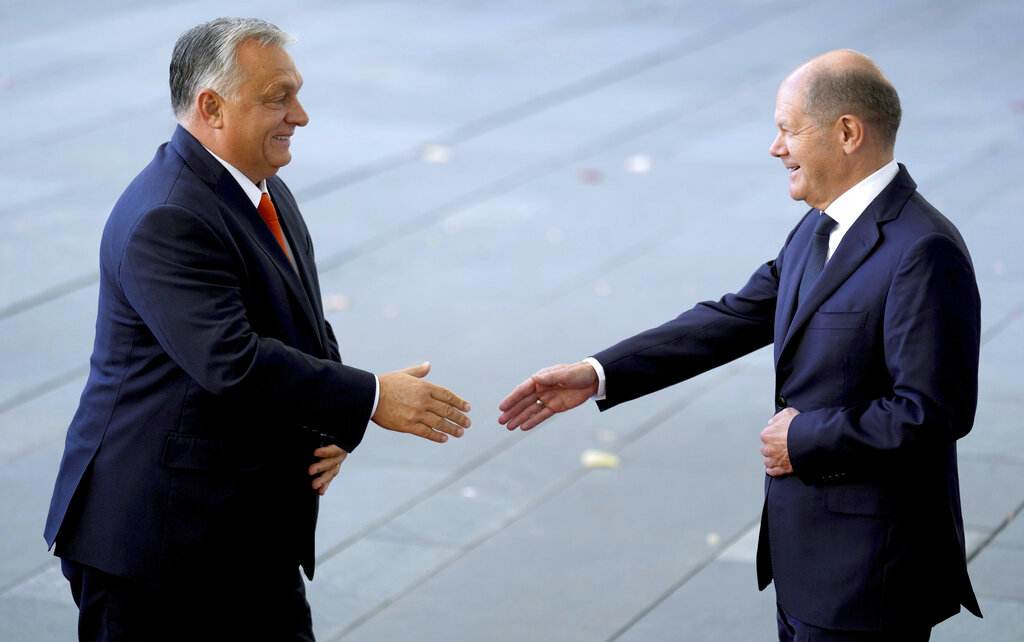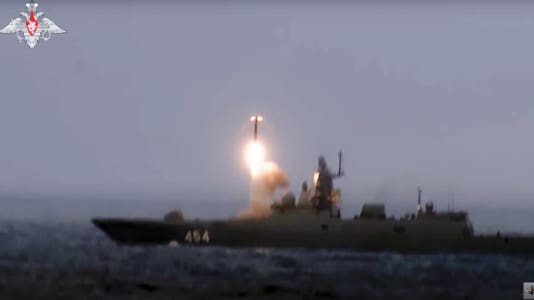Hungarian Prime Minister Viktor Orbán met with German Chancellor Olaf Scholz in Berlin where the two mostly focused on the crisis in Ukraine, with Orbán describing the talks as “fruitful.”
The prime minister said that he and Scholz discussed the difficult and complicated issues facing the two countries during their two-hour meeting. He also said that “everyone can be satisfied” with the outcome, but neither side mentioned any details regarding what they spoke about. The main topics of conversation were the war in Ukraine and Europe’s economic crisis, according to a report from Hungarian news outlet Magyar Nemzet.
The Hungarian government has been calling for an end to the war and sanctions on Russia, but has so far voted with the 27 other European countries on introducing sanctions against the country. Orbán has argued that Europe has “shot itself in the lung” due to a sanctions policy on Russia that is harming Europe more than Russia, but up until now, his calls have gone unheeded. The Hungarian leader has called for sanctions on Russia to be lifted by the end of the year.
Germany, perhaps more than any other European country, is highly reliant on Russian energy and business. The German government has been reluctant at times to send weapons to Ukraine, and there are voices warning that unless Germany can secure cheap Russian energy, the country’s entire industrial sector is under threat of going under in the coming years.
After his meeting with Scholz, Orbán spoke at a German-Hungarian economic forum, where he said that “those who cooperate with us benefit from it.” Orbán is currently on a three-day visit to Berlin and has also met with former Chancellor Angela Merkel; however, the details of their discussion have also not been publicized.
[pp id= 49846]
At the Hungarian-German economic forum, Orbán noted that despite criticism of his conservative government, which is often panned by the German left-wing press, Hungary’s model is basically a form of conservatism that was widespread and accepted in Germany for decades. He stressed that the Hungarian model is based on a conservative policy in the field of social policy, reminiscent of the period of German Chancellor Helmut Kohl. The Hungarian government envisages a work-based society with the family at the center. To accomplish this, Hungary spends most of its gross domestic product on family support, and the government basically finances families through work.
“While in 2010 the employment rate was just over 50 percent, today it is around 75 percent,” Orbán noted.
The prime minister said the government is also building national pride and wants this to be increasingly based on performance.
“There is no multiculturalism in Hungary,” he added.
Orbán warned that if Hungary did not protect its borders, the EU’s single internal market would likely collapse. He stressed that as Hungary is an open country, border protection must also be part of its economic policy.
He also spoke of the need for political security, energy security, and physical security, which will all become increasingly important in the coming period. According to him, political security is guaranteed by the stability of the government, while physical security can be ensured by, among other things, Hungary remaining an island of peace. In addition, an important part of energy security is that Hungary has enough gas reserves for six months.
“Those who cooperate with us will benefit from it,” Orbán reiterated.
He stated that Hungarian-German economic cooperation was not based on economic fundamentals, but on cultural ones. He said that Hungary had a “positive bias” towards Germany, partly for historical reasons and partly due to Germany’s cultural achievements. The foundations of bilateral cooperation cannot be destroyed by any political campaign or occasional disagreement on economic issues, he said.
Orbán arrived in Germany on Sunday when he met former German Chancellor Angela Merkel and former Prime Minister of North Rhine-Westphalia Armin Laschet. On Tuesday, he will be attending a roundtable discussion entitled “Storm over Europe – the war in Ukraine, the energy crisis and geopolitical challenges.”





